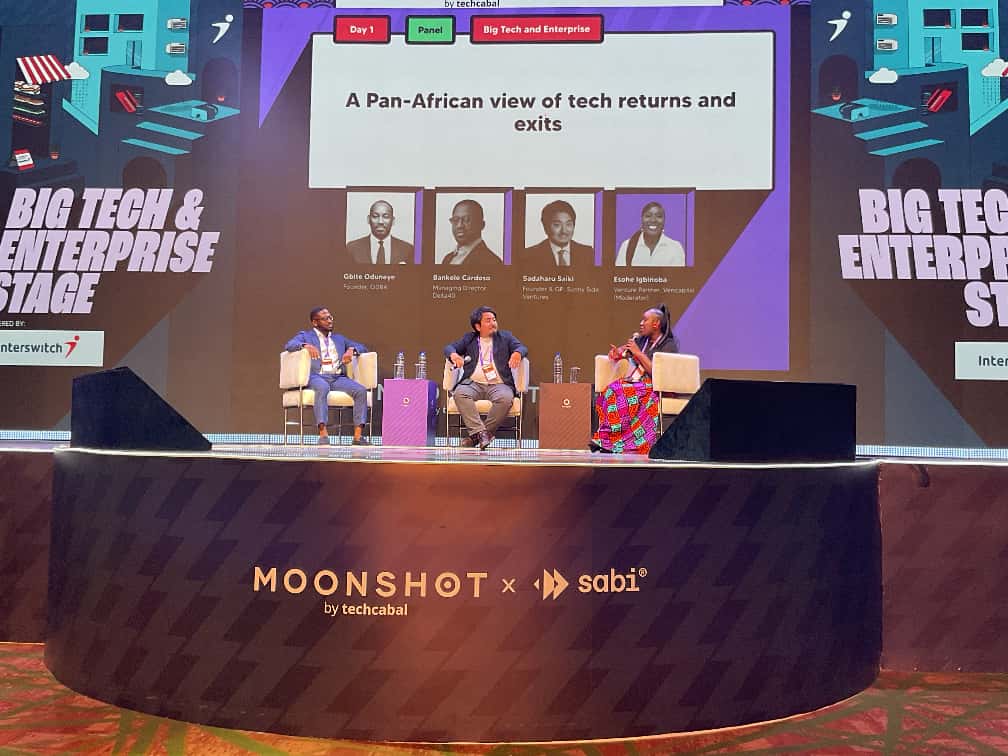
Africa’s tech story has always been about hope — young people building, coding, and dreaming against the odds. But at this year’s Moonshot by TechCabal 2025 conference, that hopeful story met a hard truth: Africa’s startups are raising more money than ever, but very few are actually making it to the finish line.
At the session titled “A Pan-African View of Tech Returns and Exits,” speakers didn’t sugarcoat it. Bankole Cardoso (Delta40), Sadaharu Saiki (Sunny Side Ventures), and Esohe Igbinoba (Vencapital) agreed on one painful reality — the continent’s startups are scaling fast, but real returns are still painfully rare.
“Exits are very, very important for our financial supply chain,” said Saiki. “VCs also have to fundraise to make Africa a viable destination in the global market.”
That comment hit home for many in the audience. It’s a quiet truth: without exits — like IPOs, acquisitions, or buyouts — investors can’t recycle money back into new ventures. Founders, too, don’t get the reward for their sweat and sleepless nights.
And when you look at the data, it stings even more.
In 2023, only 30 African startups managed to exit, compared to 83 in Southeast Asia and 178 in Japan. The gap is massive — and it explains why capital often dries up at the growth stage.
Delta40’s Bankole Cardoso had a gentle reminder for founders: “Start with the basics.”
He wasn’t talking about apps or AI. He meant governance and financial discipline — keeping proper records, building a board, and being transparent about your numbers.
“Those are the steps you should have taken from day one,” Cardoso said. “It’s how you build trust when investors or buyers eventually come knocking.”
It’s a message every founder in Africa can relate to: before chasing funding, build structure.
With global venture funding slowing down, many African startups are surviving by mixing debt and equity.
This means they borrow money to stay alive while waiting for better times to raise equity or plan an exit.
“The mix of debt and equity is going to be the next phase,” Saiki added. “We’ve been too focused on equity, and some stages are better financed by debt.”
It’s not glamorous, but it’s practical — and sometimes, practicality is what keeps the lights on.
At the end of the day, the panelists agreed: Africa’s “exit drought” isn’t just bad luck — it’s a design flaw.
We’ve built ecosystems that celebrate funding rounds, not funding returns.
Until exits become part of startup strategy — not just an afterthought — Africa’s ecosystem will keep running in circles: big headlines, few payouts, and slow recycling of capital.
The big question isn’t whether Africa can build great startups (we already are).
The question is — can we build systems that let those startups live, grow, and eventually, cash out?
Because until that happens, the dream of African tech changing lives will stay just that — a dream waiting for its return.